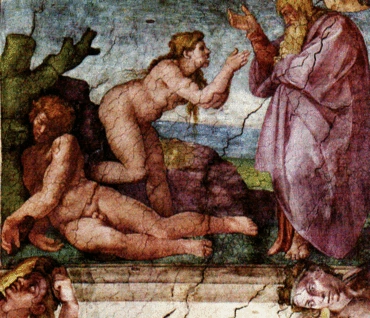Explanation of Genesis 2:21
За Brian David

Sleeping in the Bible represents a state of spiritual obscurity, in which we are distanced from the Lord and are not aware of His love and His wisdom. The Lord put the people of the Most Ancient Church (Adam) into such a state of obscurity (sleep) because they wanted to live from themselves. And in a way, humanity has been asleep ever since, unaware that our thoughts, our feelings, our very life and love flow into us from the Lord, and are not our own.
But the Lord would let Adam carry on. He took a part of him that was least alive – meaning the least receptive of the Lord, since the Lord is life – and prepared to make a new person that would give Adam the life he wanted. The people of the Most Ancient Church would be cut off from direct communication with the Lord and with heaven, but would instead – through the nearly lifeless bit of humanity represented by the rib – be able to experience life as their own.
(Посилання: Arcana Coelestia 147, 148-151)
Arcana Coelestia #9260
9260. 'You shall not turn aside the judgement of your needy one in his dispute' means not destroying the small amount of truth with those lacking in knowledge. This is clear from the meaning of 'turning aside' as perverting and so destroying; from the meaning of 'the judgement' as that which is upright and true, dealt with in 2235, 2335, 5068, 6397, 7206, 8685, 8695, 8972; from the meaning of 'needy one' as those who have only a small amount of truth owing to lack of knowledge and still have a desire to receive instruction, dealt with in 9209; and from the meaning of 'dispute' or 'quarrel' as contention, dealt with in 5963, 9024. 'In his dispute' here means in his cause involving the small amount of truth which he contends for.






